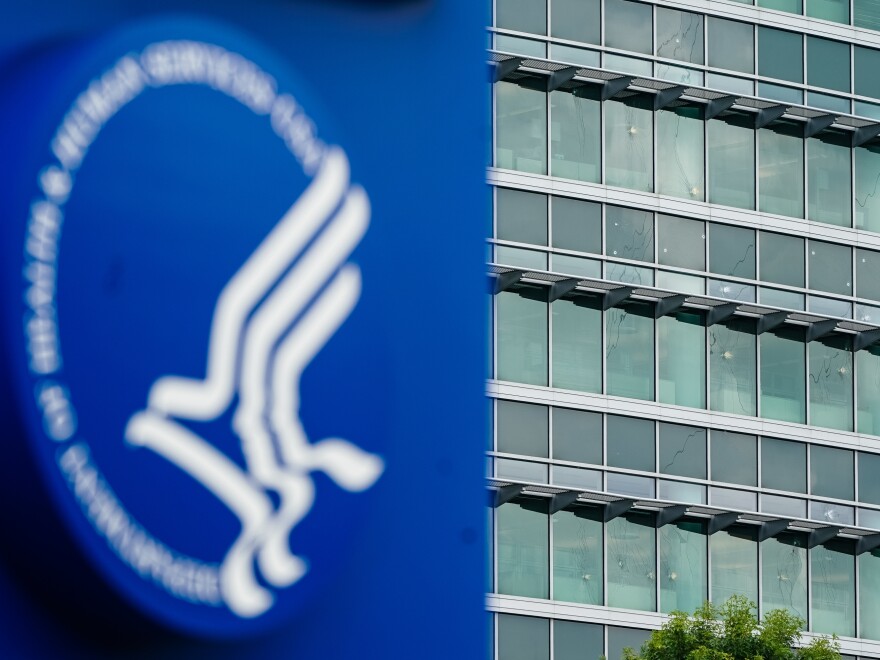Following an Aug. 8 attack on the Centers for Disease Control and Prevention’s main campus in Atlanta, staff at the CDC, National Institutes of Health, and other health agencies are urging their boss, Health and Human Services Secretary Robert F. Kennedy, Jr., to provide them with leadership and support.
Addressing Kennedy and members of Congress, a letter signed by hundreds of current and former HHS employees claims that Kennedy is “complicit in dismantling America’s public health infrastructure and endangering the nation’s health” by casting doubt on the CDC staff’s integrity, claiming falsely that COVID vaccines are unsafe or ineffective, altering vaccine policy based on ideology rather than science, and enabling “harassment and violence experienced by the CDC staff.”
According to the signatories, these elements played a part in the August 8 attack on CDC, in which a shooter fired over 500 rounds onto the agency’s main campus while positioned on a street corner in Atlanta. Based on written documents discovered in the gunman’s residence, authorities have stated that the shooting was prompted by his “discontent” with COVID immunizations. According to family members interviewed by Atlanta News First, he felt the vaccine had hurt him and was hurting other people.
Toward the close of the workday on a Friday afternoon, the shooter made his way to the CDC main campus. He targeted six CDC facilities where staff members hid in closets, huddled beneath desks, and barricaded themselves in offices. After killing 33-year-old David Rose, a responding police officer, the shooter took his own life.
Dr. Fiona Havers, a former CDC official who signed the letter and departed the organization in June, stated, “This is a major event,” “It’s critical that the scale of this event is recognized and that people that work in public health, and public health in general, are given much more support than they’re being given right now.”
Dr. Elizabeth Soda, an infectious diseases specialist with the CDC’s National Center for Emerging and Zoonotic Infectious Diseases, came back to campus a few days after the shooting to pick up her laptop. She claims, “I never dreamed I’d see CDC in that state, never dreamed I’d see bullet holes,” but not on behalf of the organization.
Just thirty minutes prior to the shooting, Soda had left campus, and during the assault, she was frantically texting coworkers. “Initially, I was shocked,” she explains, “but now that I’ve sat and thought about it, it’s not surprising.” She claims that the politics of science and health, along with years of disseminating false health information, has made it easier for violence against public health professionals to occur.
According to Havers, such forces have intensified in recent months. “The fact that the inflammatory rhetoric and misinformation about COVID vaccines is now coming from the HHS Secretary and from the administration hasfueled itand given it legitimacy it may not have had before,” she adds.
Employees at the CDC claim that Secretary Kennedy has not responded enough to the shooting. In the days that followed, he traveled to Atlanta to tour the campus, meet with the director of the CDC and security personnel, and pay a visit to the wife of the murdered police officer. He pledged support for CDC staff in a social media message. “No one should face violence while working to protect the health of others,” he stated.
However, workers allege that neither a complete justification of the CDC’s mission and work nor any reference to the false information about COVID vaccines that investigators claim inspired the shooter were there. Kennedy claimed that government representatives were “saying things that were not always true” in an attempt to “persuade the public to get vaccinated” during the COVID outbreak in an interview with Scripps News days after the attack. “Public health agencies have not been honest,” he stated. Kennedy added that “trusting the experts is not a feature of science or democracy, it’s a feature of totalitarianism and of religion.” In other words, public health authority should not be believed.
Kennedy has been urged by the letter’s signatories to “stop spreading inaccurate health information,” “affirm CDC’s scientific integrity,” and ensure the employees of HHS are safe.
Kennedy has been requested to respond by September 2 by the letter authors.Copyright 2025 NPR






